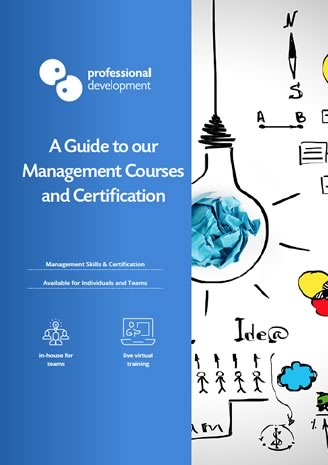Given how the terms “lean”, “six sigma”, and indeed “lean six sigma” are used so interchangeably, wondering what the main difference is between lean and six sigma is a great question.
In this article, we will answer this question with a quick introduction to lean, six sigma, and also to how they work together.
Contents:
- Is there a difference between lean and six sigma?
- What is lean?
- What is six sigma?
- How do lean and six sigma work together?
- How can I get lean six sigma knowledge and skills?
Is there a difference between lean and six sigma?
Yes, there is a difference. Lean and six sigma are standalone process improvement methodologies in their own right.
However, they work so well together and are so frequently combined that these methodologies almost go hand in hand these days.
Let’s take a look at each one individually and then together…
What is Lean?
Although it emerged in the car manufacturing industry in the 1930s, the ensuing decades saw the use of lean spread to almost every kind of industry.
Lean is methodology that seeks to identify and remove or reduce any wasteful or non-value-add elements from a process.
Lean is designed to streamline processes, save time, and improve efficiency.
What is Six Sigma?
Six sigma is a highly data-driven methodology.
Its aim is to reduce defects and variations within a process to improve the quality and consistency of a product or service.
The data collected combined with various tools and techniques is used to achieve this aim.
Six sigma also has roots in the manufacturing sector. It was originally introduced by Bill Smith at Motorola in the late 1980s.
As with lean, its effectiveness and suitability for other industries meant a rapid spread throughout all kinds of businesses.
What does the term “six sigma” mean?
Six sigma (sometimes represented as 6σ) is a term that comes from statistical modelling.
A “sigma” is a rating applied to a process that indicates the percentage of products or service applications can be expected to be “defect-free”.
Within this rating system, six sigma refers to a process that is expected to yield 99.99966% defect-free outcomes.
Of course, this is a very high standard and therefore, six sigma is seen as the aspirational goal of this process improvement methodology.
How do lean and six sigma work together?
Although you can probably already see that these methodologies are quite effective when applied solo, it is widely agreed that they are much more powerful when combined.
While both methods aim to streamline a process, they approach it from different angles.
Lean looks at identifying unnecessary steps or activity within a process, while six sigma targets variations that can occur within the process.
- Both lean and six sigma seek to make the process better.
- Lean does this by asking “how can we reduce the amount of non-value-add activities within the process?”.
- Six sigma asks “how can we make the process more reliable for quality output by reducing the risk of error or variation?”
Rather than overlapping too much or clashing in their objectives, the combination of lean and six sigma works harmoniously.
Combined, they produce an even more effective solution to your original question “how can we make this process better?”.
How can I get lean Six Sigma knowledge and skills?
Given that these methodologies are so frequently used together, finding a training programme that covers both knowledge areas is an easy task.
There are programmes solely focused on lean or six sigma, as some industries or roles require it. However, lean six sigma courses of a high calibre are readily available worldwide.
Once you begin researching the right lean six sigma training for your development, you may just become overwhelmed with the choice available.
We recommend choosing a course that:
- Provides you with both a theoretical understanding and practical skills you can utilise in your work immediately.
- Fits well with your availability and preferred method of learning.
- Leads to a certification that will underline your knowledge and capabilities.
“Where should I begin?”
Your first venture into the world of lean six sigma training depends entirely on your goals at this present moment.
To offer some guidance, we have listed two of our courses that are popular with first-time students below.
Both courses listed below are delivered by our professional trainers who bring a wealth of real-life experience as lean six sigma practitioners to the course delivery.
The delivery style is “live online classroom”, meaning that you can join online from anywhere for an interactive, real-time session that mirrors an in-person experience.
Lean Six Sigma Yellow Belt – 2 Days – Live Online Training – Certified
We recommend this course if you would like to begin gaining an understanding of lean and six sigma, coming away with skills you can begin to use within your own work.
Our yellow belt course has a particular focus on how lean works with some elements of six sigma introduced.
It’s a popular choice with those who are interested in lean six sigma but want a taster before diving deeper into this area.
Learn more by visiting our Lean Six Sigma Yellow Belt course page
Lean Six Sigma Green Belt – 5 Days – Live Online Training – Certified
Our most popular and frequently run lean six sigma course, Lean Six Sigma Green Belt is perfect for gaining a confident working understanding of lean six sigma.
You will gain versatile process improvement skills and the ability to implement a combined lean six sigma approach to projects.
Two certifications are also included here: a Professional Development Lean Six Sigma Green Belt and a QQI certificate in Lean Manufacturing Tools.
Advice & Resources
Our training consultants can offer guidance on choosing the right lean six sigma training for your needs.
You can reach us by phone (Freephone 1800 910 810) or by asking a question online.
If you would like to continue reading about lean, six sigma, and continuous improvement, here are some suggested resources:


